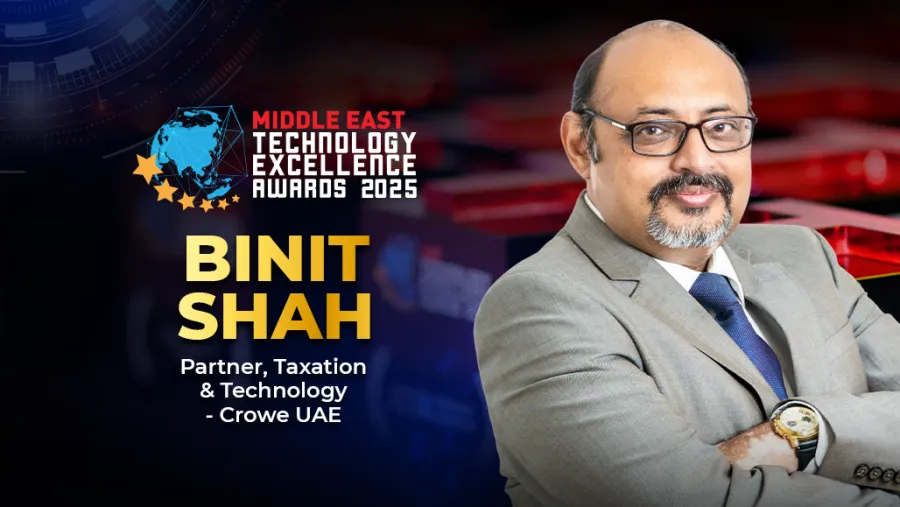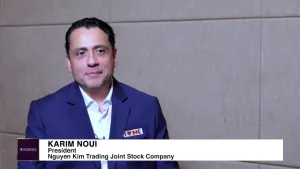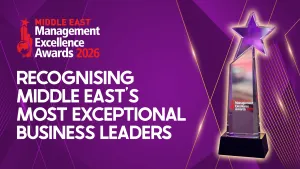
Crowe UAE’s Binit Shah explores how compliance is driving technology investment in the Middle East
He highlights the balance between compliance, scalability, and measurable impact in technology adoption.
The Middle East is seeing a major shift in technology adoption, driven by new tax regimes, regulations, Artificial Intelligence (AI), and digital transformation, with compliance now a key driver of investments in ERP, analytics, and sustainability tools.
Offering valuable insights is Binit Shah, Partner – Taxation & Technology at Crowe UAE, with over 30 years of experience in ERP system design, IT project management, taxation, and business advisory. He leads a multidisciplinary team delivering solutions in tax, transfer pricing, ESR, outsourcing, accounting, IT consulting, software development, and AI-driven analytics—guiding clients towards efficient, technology-led operations.
With a sharp ability to pinpoint IT challenges, Shah has designed integrated systems that enhance productivity, leverage AI for predictive insights, streamline decision-making, and optimise ERP implementation from selection to execution. His expertise in business intelligence, IT risk management, functional consultancy, and AI-assisted automation has enabled organisations to harness technology effectively, measure growth, and build sustainable, information-led environments.
As a judge at the Middle East Technology Excellence Awards 2025, Shah discussed how evolving tax laws, regulatory demands, AI adoption, and digital transformation are shaping technology investment strategies across the Middle East.
In your experience, how are regional tax and regulatory developments shaping technology investment decisions across the Middle East?
Regional tax regimes—especially the rollout of VAT, Excise Tax, and more recently Corporate Tax in countries like the UAE and KSA—have acted as a catalyst for digital transformation across the Middle East. These developments have prompted businesses to invest in tax automation tools, ERP enhancements, AI-powered compliance monitoring, and real-time reporting systems to remain compliant. Governments are also adopting e-invoicing mandates, which have further pushed businesses to upgrade legacy systems in favour of compliant, scalable technologies. In many cases, compliance is no longer just a finance function—it has become a key driver of enterprise technology investment.
How are current tax and regulatory frameworks in the Middle East influencing where and how businesses invest in technology?
The growing complexity and frequency of regulatory updates across the region have made real-time compliance and data transparency essential. This is influencing businesses to invest in centralised, cloud-based ERP systems that can adapt quickly to jurisdictional changes. Multinational companies are particularly focused on selecting platforms that support multi-country tax engines, localisation packs, and AI-assisted regulatory forecasting. Furthermore, governments’ moves toward digital tax administrations and e-governance are encouraging private sector alignment, particularly in sectors like financial services, logistics, and e-commerce, where cross-border and cross-functional visibility is crucial.
What methods do you find most effective in measuring departmental and organisational productivity through technology?
Effective measurement hinges on clear KPIs integrated into digital workflows. Technologies like Business Intelligence (BI) dashboards, AI-powered process mining, and Robotic Process Automation (RPA) analytics provide real-time visibility into task performance, turnaround time, error rates, and resource utilisation. For instance, finance departments often benefit from using ERP-based dashboards to track monthly closing cycles or invoice processing times, whilst operations teams may use IoT-enabled metrics and AI-driven predictive maintenance to measure asset efficiency. Productivity is best measured when data flows seamlessly across systems, enabling benchmarking across departments and alignment with organisational objectives.
How are business and compliance considerations shaping how organisations select and implement ERP systems today?
ERP selection is no longer based solely on operational functionality. Today, regulatory agility, AI-enabled analytics, data security, and audit-readiness are critical considerations. Businesses are choosing ERP systems that offer robust localisation features, built-in tax engines, AI-driven compliance alerts, seamless integration with e-invoicing platforms, and the ability to handle ESG and sustainability disclosures. Implementation approaches are also becoming more modular and phased, allowing businesses to prioritise critical compliance modules (e.g., VAT, payroll, or statutory reporting) whilst future-proofing the system for upcoming mandates like corporate tax, UBO, and e-reporting.
How do you see technology investment priorities evolving in the Middle East in the coming years?
Investment priorities are expected to shift toward platforms that enable automation, compliance, AI integration, and scalability. Key focus areas will include tax and regulatory tech, with continued investment in e-invoicing, corporate tax automation, and AI-based digital compliance tools; predictive analytics for financial planning, customer insights, and risk management; and cybersecurity and data sovereignty, in line with data localisation laws and increasing cloud adoption. Sustainability reporting tools will also be a priority, driven by ESG reporting mandates and stakeholder expectations, along with sector-specific solutions such as RegTech in banking, HealthTech in healthcare, and EdTech in education. Governments’ digital agendas, smart city initiatives, and AI strategies will also guide regional technology priorities.
As a returning judge for the Middle East Technology Excellence Awards, what new or elevated criteria will you be focusing on this year when evaluating the nominees’ technological achievements and impact?
This year, I will be placing additional emphasis on scalability, AI integration, regulatory alignment, and measurable impact. Specifically, the focus will be on innovation with compliance—developing solutions that integrate Artificial Intelligence whilst addressing regional tax, legal, or ESG mandates. Equal importance will be placed on tangible business value, with demonstrated ROI, efficiency gains, or cost savings resulting from implementation, and on user-centric design, creating systems that enhance user adoption, accessibility, and operational simplicity. Future-readiness will also be a priority, with solutions built to adapt to upcoming regulations, AI advancements, or cross-market expansion, along with sustainability and inclusion initiatives that address environmental, social, or accessibility dimensions meaningfully. Ultimately, I am looking for technology that not only solves problems today but is intelligent, resilient, ethical, and adaptable for the future.


















 Advertise
Advertise






